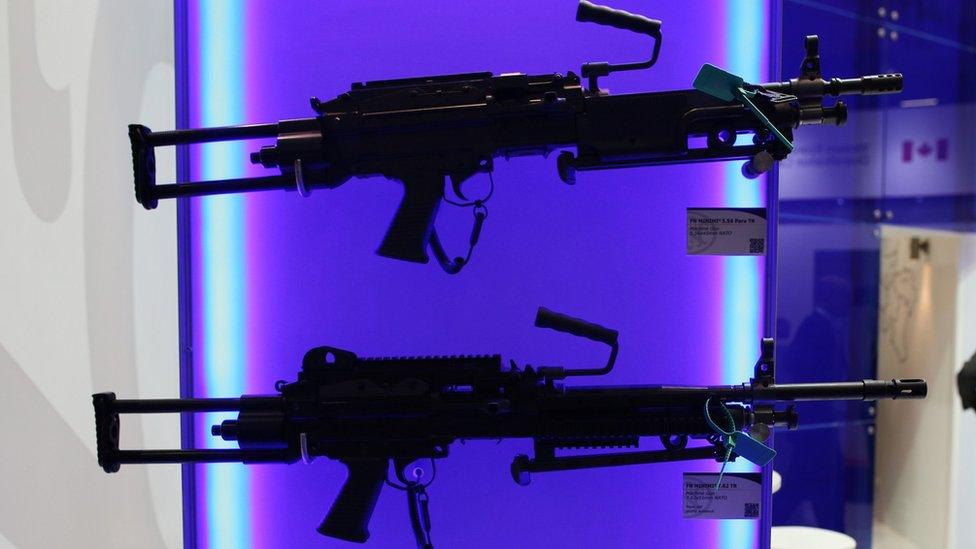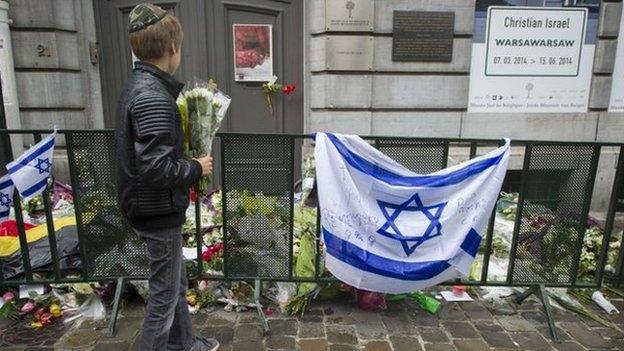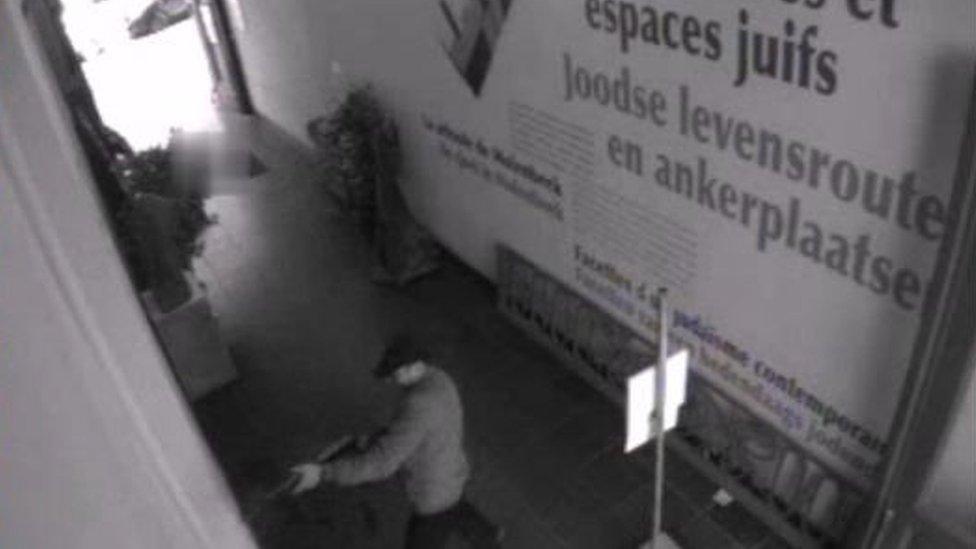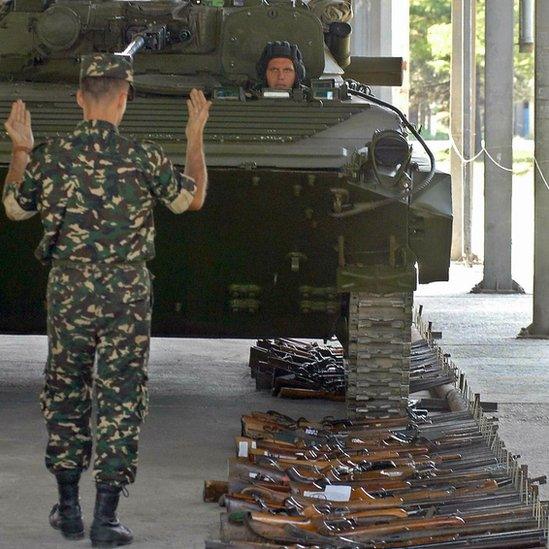Paris attacks: Is Belgium Europe's favourite gun shop?
- Published

Belgium has traditionally had a strong arms industry
Recent attacks in Europe indicate that perpetrators are increasingly using firearms.
While previously explosives were the weapon of choice - for instance in the Madrid and London bombings in 2004 and 2005 - attackers seem to have changed their tactics and found their way to the illegal gun market.
In several recent attacks, including the attacks in Paris, there was a connection between the guns used and Belgium.
Is Belgium the dream destination for terrorists who want to get their hands on illegal guns?
Hotspot
Of course, Belgium - like other European countries - has a black market for guns.

A jihadist was charged over the murder of four people at the Jewish Museum in Brussels in May 2014
The presence of illegal weapons is closely connected to serious crime and vice-versa. This means that there is a black market for firearms in all major European cities.
However, Belgium is an important player because of its geographical location and history.
For centuries the country has been a major producer and exporter of firearms. Moreover, until 2006 it had quite liberal domestic gun legislation, making the country a European hot spot for the arms trade, including for people with bad intentions.
Even though Belgian legislation is now stricter and more solid, the country has retained this reputation.
Smuggling from Balkans
It is not a coincidence that some of the people carrying out these attacks have a personal history of criminal violence. Since the black market in guns is closely linked to serious crime networks, previous connections - based on trust - enable them to secretly acquire firearms.

The gunman who attacked the Jewish Museum in Brussels used a Kalashnikov
Most of the firearms on the black market are handguns. A handgun is the preferred type of firearm for most criminals since these are easy to hide.
However, in recent years, Belgian police have noticed an increase in the possession and use of military-style weapons such as Kalashnikovs among criminals.
Depending on the type and condition of the weapon and how quickly one wants to get it, prices on the Belgian black market are generally between 1,000 and 2,000 euro (£700-£1,400).
This increase of heavy firearms on the illegal market is mainly linked to smuggling from the Balkans.
After the Balkan wars of the 1990s, hundreds of thousands of military weapons stayed in the hands of citizens.
These weapons have found their way to Western Europe by being smuggled in small quantities, for instance in the boots of cars. Once they cross the EU's external borders, these weapons can easily be transferred from one European country to another within the Schengen zone.

Some weapons used in the Balkan wars were put out of service, but many have remained in circulation
To tackle this illegal market in firearms, we need an integrated approach, not only in Belgium but certainly also at the European level.
Such an approach would consist of three elements.
Firstly, we need strong and harmonised legislative frameworks for legal gun possession at the national level across the EU.
The clearer the rules on legal possession, the more efficient the fight against the illegal market.
Secondly, we need more knowledge of the problem. This means better data management at the national level and more efforts to exchange and analyse these data at the European level.
Thirdly, we need more operational strength on the ground and more co-operation between national authorities, for example joint investigative teams.
Nils Duquet is a researcher at the Flemish Peace Institute, based in Brussels